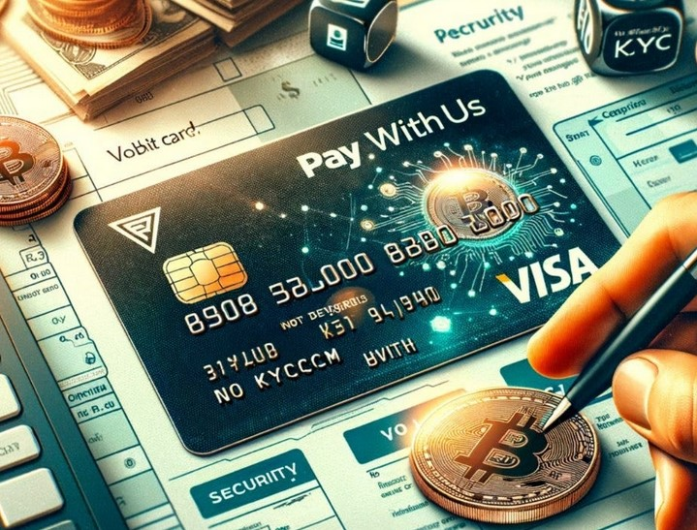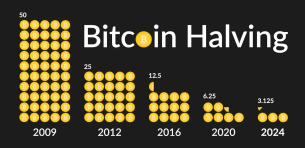In today's digital age, the concept of online transactions and payments has become increasingly prevalent. As such, the need for secure and convenient payment methods has also grown in importance. When it comes to virtual cards without KYC (Know Your Customer) verification requirements, one of the best options available is Privacy.com. This platform allows users to create virtual cards that can be used for online purchases without the need to provide personal information or undergo a KYC process. This level of anonymity provides peace of mind for those who prioritize privacy and security in their financial transactions.
Privacy.com offers a user-friendly interface that makes it easy to generate virtual cards for specific vendors or websites, helping users keep track of their spending habits more effectively. Additionally, the platform provides advanced security features such as single-use card numbers and spending limits, further enhancing the protection of users' financial information. With Privacy.com, individuals can enjoy the convenience of making online purchases without compromising their privacy or exposing themselves to potential risks associated with sharing personal data.
Overall, choosing a virtual card provider like Privacy.com that does not require KYC verification can offer a balance between convenience and security in the realm of online payments. By prioritizing user anonymity and providing robust security measures, platforms like Privacy.com empower individuals to make transactions with confidence while safeguarding their sensitive information from potential threats. As digital transactions continue to evolve, having access to reliable and trustworthy virtual card services becomes essential for maintaining financial privacy in an increasingly interconnected world.
When looking for the best virtual card without KYC (Know Your Customer) requirements, it's important to consider factors such as security, ease of use, and availability. Some popular options that offer virtual cards without requiring extensive KYC verification include privacy.com and Revolut. These platforms allow users to create virtual cards for online transactions without needing to provide detailed personal information.
Privacy.com offers disposable virtual cards that can be easily generated and used for one-time purchases, providing an extra layer of security for online shopping. On the other hand, Revolut is a digital banking platform that offers virtual cards as part of its services, allowing users to make secure payments online without the need for traditional banks or extensive verification processes. Both options provide convenient and secure ways to make online transactions without compromising on privacy.
Overview of virtual cards
When it comes to virtual cards without KYC (Know Your Customer), there are several options available in the market. These virtual cards allow users to make online transactions without having to provide personal identification information. One popular option is Privacy.com, which offers virtual cards that can be used for one-time purchases or for setting up recurring payments without the need for KYC verification.
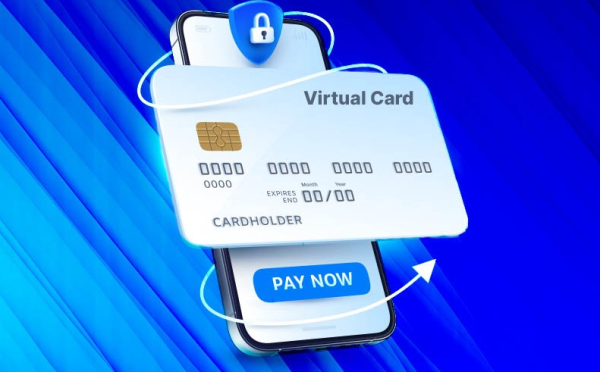
Another alternative is Revolut, a digital banking platform that provides virtual cards with no KYC requirements. Users can easily create and use these virtual cards for online shopping or other transactions, making it a convenient and secure option for those looking to maintain privacy while making digital payments. Overall, the best virtual card with no KYC will depend on your specific needs and preferences, so it's important to research and compare different options before choosing one that suits you best.
Virtual cards offer a convenient and secure way to make online payments without the need to disclose personal information such as bank account details. One of the best virtual card options that does not require Know-Your-Customer (KYC) verification is Revolut. With Revolut, users can easily create virtual cards within their app, enabling them to shop online with ease while maintaining their privacy. These virtual cards are disposable, meaning they can be used for one-time purchases or set up for recurring payments.
Another popular choice for a no KYC virtual card is Privacy.com. This platform allows users to generate virtual cards linked to their bank accounts but without the need for extensive identity verification processes. Privacy.com also offers features such as setting spending limits and creating multiple virtual cards for different purposes, adding an extra layer of security and control over online transactions. Overall, these no KYC virtual card options provide a convenient and safe way for individuals to shop online without compromising their personal information.
Importance of no KYC requirement
Privacy and security are paramount in today's digital age, making the need for a virtual card without KYC verification crucial. The best virtual card with no KYC ensures that users can make online transactions without revealing their personal information, safeguarding their privacy and protecting them from potential identity theft. By eliminating the KYC requirement, individuals can maintain their anonymity while enjoying the convenience of online shopping and managing their finances securely.
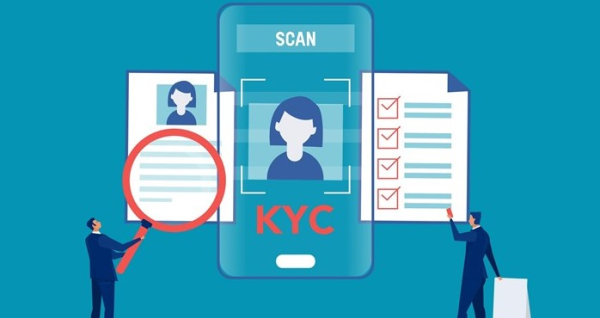
Moreover, a virtual card without KYC allows individuals to maintain control over their financial data and avoid unnecessary sharing of sensitive information with third parties. This level of autonomy empowers users to protect their personal details from being misused or exploited by unauthorized entities. Ultimately, opting for a virtual card that does not require KYC verification offers peace of mind and reassurance to individuals who value their privacy and seek to minimize risks associated with sharing personal information online. In an era where data breaches and cyber threats are prevalent, choosing a virtual card with no KYC requirement is not just a matter of convenience but also a proactive step towards safeguarding one's digital identity.
When it comes to virtual cards with no KYC (Know Your Customer) requirement, the main advantage is the privacy and anonymity they provide. By not having to go through the KYC process, users can make online transactions without disclosing personal information such as their identity, address, or financial details. This can be especially useful for individuals who value their privacy and want to maintain a level of anonymity while making purchases online.
Another important aspect of virtual cards with no KYC requirement is the convenience they offer. Users can quickly and easily obtain these cards without having to submit any documents or undergo verification processes. This makes them ideal for those who are looking for a hassle-free way to make online payments without the usual bureaucratic hurdles associated with traditional banking systems. Overall, virtual cards with no KYC requirement provide a convenient and private option for individuals seeking a more streamlined and anonymous online shopping experience.
Security and privacy concerns
When looking for a virtual card that doesn't require KYC (Know Your Customer) verification, it's important to consider both security and privacy concerns. While avoiding KYC may provide some level of anonymity, it also opens up potential risks. Without proper verification, the virtual card provider may not have sufficient information to protect your account from fraud or unauthorized access.
To ensure both security and privacy with a no-KYC virtual card, consider using reputable providers with strong encryption measures and fraud detection systems in place. Look for reviews and feedback from other users to gauge the reliability of the service. Additionally, be cautious about sharing personal information or using the virtual card on unsecured websites to minimize the risk of data breaches or identity theft.
Ultimately, while opting for a no-KYC virtual card can offer convenience and privacy benefits, it's crucial to prioritize security by choosing a trusted provider and practicing safe online habits when using the card. By taking these precautions, you can enjoy the advantages of a virtual card while minimizing potential risks to your financial information.
In today's digital age, the use of virtual cards has become increasingly popular due to their convenience and security features. However, when it comes to choosing the best virtual card without requiring Know Your Customer (KYC) verification, security and privacy concerns may arise. One important aspect to consider is the level of encryption and data protection offered by the virtual card provider. Opting for a service that prioritizes strong encryption methods can help safeguard your personal information from potential cyber threats.
Moreover, another key consideration is the reputation and track record of the virtual card provider in terms of maintaining user privacy. Conducting thorough research on different providers and reading reviews from other users can give you valuable insights into how well they handle customer data and ensure confidentiality. Additionally, it is essential to look for a virtual card that offers anonymity in transactions, preventing any third parties from accessing or tracking your financial activities without your consent.
While navigating through various options for virtual cards without KYC requirements, it is crucial to strike a balance between convenience and security. By carefully evaluating factors such as encryption protocols, privacy policies, and user feedback, you can make an informed decision that aligns with your priorities regarding data protection and confidentiality. Ultimately, selecting a reputable virtual card provider with robust security measures in place can offer peace of mind knowing that your financial information remains secure while enjoying the benefits of online transactions without intrusive identity verification processes.
Comparison with traditional options
Virtual cards with no KYC (Know Your Customer) requirements have gained popularity in recent years due to their convenience and privacy. These virtual cards offer users a way to make online transactions without having to provide personal identification information, such as a government-issued ID or proof of address. This level of anonymity can be appealing to individuals who value their privacy and want to protect their sensitive data from potential security breaches.
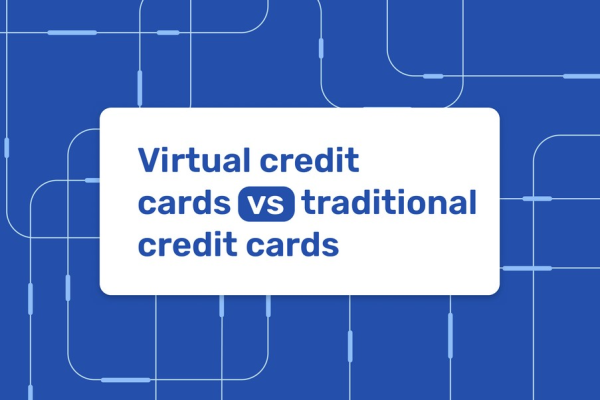
In comparison, traditional payment methods often require extensive KYC procedures, which can be time-consuming and intrusive for users. Virtual cards with no KYC offer a quick and easy alternative for those looking to make secure online payments without having to go through the cumbersome verification process. Additionally, these virtual cards can be easily obtained online, making them accessible to anyone with an internet connection. Overall, the best virtual card with no KYC provides a convenient and secure option for individuals who prioritize privacy and simplicity in their online transactions.
Furthermore, virtual cards without KYC are particularly beneficial for international transactions where users may face restrictions or complications when using traditional payment methods. By bypassing the need for extensive identity verification processes, these virtual cards enable users to make cross-border payments seamlessly and efficiently. The ability to transact globally with ease, coupled with the added layer of privacy protection, makes virtual cards with no KYC an attractive choice for individuals seeking a hassle-free payment solution in today's digital world.
When comparing virtual cards with traditional options in terms of KYC (Know Your Customer) requirements, virtual cards usually offer more anonymity and privacy. Virtual cards can be obtained without the need to provide personal identification information, making them a popular choice for those who value their privacy or wish to make online purchases without revealing their identity.
However, it's important to note that some virtual card providers may still require some form of verification for security purposes. Traditional payment methods, on the other hand, often require extensive KYC procedures due to regulatory requirements and anti-money laundering laws. While traditional options may offer more widespread acceptance and convenience for physical transactions, virtual cards can be a great alternative for those looking to maintain their privacy while making online payments.
Top virtual card providers without KYC
When it comes to virtual cards without KYC (Know Your Customer) requirements, it's important to prioritize security and reliability. One top virtual card provider that doesn't require KYC is Privacy.com. Privacy.com offers virtual cards that can be used for online purchases without revealing your personal information. Another option is Revolut, a digital banking platform that provides virtual cards with no KYC requirements for certain transactions.
While these providers offer convenience and privacy, it's crucial to remember the potential risks associated with using virtual cards without KYC verification. Make sure to thoroughly research and understand the terms and conditions of these services before using them to ensure your financial information remains secure.
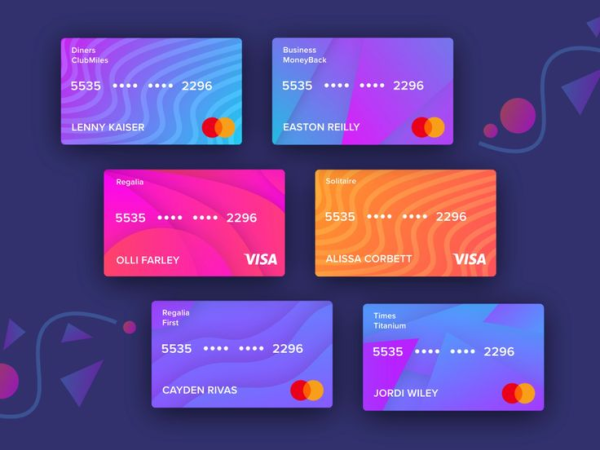
In today's digital age, virtual cards have become a popular option for online transactions due to their convenience and security features. For many individuals, maintaining privacy and avoiding the hassle of Know Your Customer (KYC) requirements is essential when it comes to using virtual cards. Fortunately, there are several top virtual card providers that offer no KYC options for those seeking anonymity in their online purchases.
One standout virtual card provider without KYC is Revolut. With its sleek mobile app interface and user-friendly platform, Revolut offers the flexibility of creating disposable virtual cards for one-time use without the need for any personal identification verification. Another notable choice is Privacy.com, which is known for its focus on protecting users' financial information by generating unique virtual card numbers that can be easily managed and monitored through its dashboard. By partnering with reputable banks and ensuring encryption protocols are in place, Privacy.com allows users to make secure online transactions without compromising on privacy or requiring cumbersome KYC processes.
Overall, opting for a virtual card provider that does not require KYC can provide peace of mind for individuals who value their anonymity while conducting online transactions. With options like Revolut and Privacy.com offering seamless user experiences and robust security measures, consumers can confidently embrace the convenience of virtual cards without sacrificing their privacy concerns. As technology continues to evolve, these no-KYC virtual card providers serve as valuable tools for safeguarding personal information in an increasingly interconnected digital world.
User experience and ease of use
As a privacy-conscious individual, finding the best virtual card without KYC requirements has been a priority for me. After researching and exploring various options, I stumbled upon a virtual card provider that stood out for its user experience and ease of use. The process of obtaining and using the card was seamless, requiring only basic information such as email address and payment details. This minimalistic approach to KYC made the entire experience hassle-free and convenient.
Upon receiving my virtual card, I quickly discovered how intuitive the platform was to navigate. The interface was clean, organized, and user-friendly, allowing me to easily manage my transactions and track my spending. Additionally, the integration with popular payment gateways and e-commerce platforms made it effortless to use the virtual card for online purchases without any restrictions or complications. The absence of stringent verification processes not only safeguarded my privacy but also saved me time typically spent on lengthy KYC procedures.
Overall, the best virtual card without KYC requirement has truly enhanced my digital financial experience by offering a seamless user journey with unparalleled ease of use. Its commitment to prioritizing user privacy while delivering convenience has set it apart from traditional banking systems. With this innovative solution at hand, I can confidently engage in online transactions while maintaining control over my personal information – a testament to how technology can empower individuals in today's digital age.
Conclusion
In conclusion, the search for the best virtual card with no KYC requirements can be a challenging endeavor, but ultimately rewarding. By exploring various options and weighing factors such as security, convenience, and user experience, individuals can find a virtual card that aligns with their needs and preferences. It is essential to prioritize transparency and trustworthiness in selecting a provider to ensure a secure financial transaction environment.
Additionally, staying informed about the latest developments in virtual card technologies and regulations can help users make informed decisions when choosing a no-KYC virtual card. As digital payment methods continue to evolve, users must adapt their strategies accordingly to stay ahead of potential risks and maximize the benefits of using virtual cards. Overall, finding the best virtual card without KYC verification involves careful consideration of multiple factors and an ongoing commitment to safeguarding one's financial information in an increasingly digital world.
